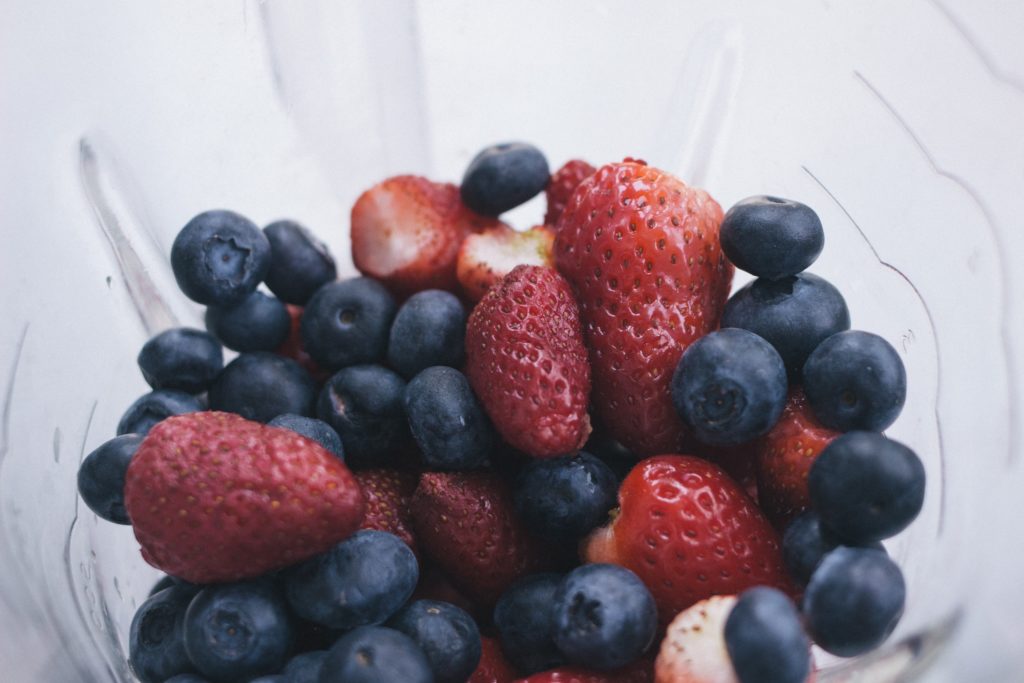SOME foods actually stop the build-up of fat and speed up the metabolism.
When you’re trying to lose weight, it can be demoralising to constantly be reminded of all the foods you should not be eating. But some foods are ideal for weight control. Dubbed “fast foods” or “edible amphetamines”, some foods help speed up the metabolism and break down fat.
Others nurture the liver or keep you full for longer. But there are no “zero-kilojoule” foods, says Laura Sutherland, dietitian and spokesperson for the Dietitians Association of Australia.
“Foods can play a part in minimising our build-up of fat storage, but the real key is energy in versus energy out – not taking in too many extra kilojoules and burning off a little extra.”
Here are the ten best foods to reach for:
1. Lean meat
Why you can eat up: Researchers in Denmark found boosting the lean protein in your diet may help you burn five per cent more kilojoules a day, perhaps because it takes more energy to digest protein than carbohydrates or fat. Sutherland says lean meat’s benefit is satiety. “A meal with lean protein makes you feel satisfied, which helps to avoid overeating later.”
How to eat: Opt for lean pork, chicken or turkey and remove any skin beforehand.
2. Low-fat milk, cheese, yoghurt
Why you can eat up: A US study found consuming about 1300 milligrams of calcium a day helped people lose almost twice as much weight. Another study found post-menopausal women who consumed calcium with vitamin D supplements put on less weight than those who didn’t. It is thought calcium may break down fat cells and suppress the growth of new ones.
How to eat: Eat low-fat yoghurt and add reduced-fat or cottage cheese to a sandwich.
3. Berries and citrus fruits
Why you can eat up: Vitamin C-rich foods contain flavones, compounds that increase metabolism, control cholesterol levels and help dilute fats. A US study found women with a high-flavone diet gained less body fat over 14 years than those not on the diet. Another study found eating strawberries and raspberries before exercise helped burn up to 30 per cent more fat.
How to eat: Try fresh orange juice, a fruit smoothie or a handful of berries before gym.
4. Soybeans, chickpeas, lentils
Why you can eat up: “Legumes, lentils, soybeans and chickpeas are a mix of protein and carbohydrate,” says Sutherland. They’re low in fat, high in fibre and have a low glycaemic index (GI). Soybeans also contain choline, a component of lecithin which helps to move fat from the liver.
How to eat: Add to soups, curries or stir-fries.
5. Salmon, avocado, nuts, ground flaxseed
Why you can eat up: Oily fish and plant-based fats contain essential fatty acids that help burn fat. Research shows adding a handful of walnuts or almonds to a low-fat diet daily helps to reduce weight, body fat and insulin levels. Fish has also been found to lower women’s levels of leptin, a hormone linked to a slower metabolism and obesity.
How to eat: Eat a handful of unsalted, unroasted nuts, add flaxseed to cereal or yoghurt, eat avocado and salmon sandwiches.
6. Cinnamon
Why you can eat up: US Agricultural scientists found adding just a quarter teaspoon of cinnamon to your diet can boost your sugar metabolism, lower blood sugar levels and help you store less fat.
How to eat: Add to yoghurt or smoothies.
7. Sweet potatoes, oats, wholegrain cereal
Why you can eat up: The high soluble fibre content and low GI keep you full for longer. “This helps regulate blood glucose levels [so] you don’t want to snack,” says Sutherland.
How to eat: Eat porridge, wholegrain sandwiches, lean meat and sweet potatoes.
8. Chilli, cayenne pepper
Why you can eat up: Studies show that people who eat spicy foods consume less kilojoules and carbohydrates than those with milder tastebuds. Scientists believe it’s thanks to the chemical capsaicin, which can trigger a thermodynamic burn that speeds up heart rate and boosts metabolism by as much as 25 per cent. “You sweat more, so the body’s working harder,” says Sutherland.
How to eat: Pair with lean protein to help process fat through the body.
9. Mustard, Indian curries
Why you can eat up: While more human testing is needed, a US study found that turmeric, the spice that adds colour to mustard and Indian curries, slows down the spread of fat tissue in animals and lowers blood glucose, triglyceride, fatty acid and cholesterol.
How to eat: Add turmeric to curry or casseroles. Try mustard on sandwiches instead of butter or mayonnaise.
10. Ginger and garlic
Why you can eat up: Ginger and garlic are vasodilators, expanding your blood vessels and boosting body heat. In turn, your metabolism speeds up a little (some animal studies found ginger increased metabolism by as much as 20 per cent).
How to eat: Add ground or fresh to curries and stir-fries. Add ginger to tea and fresh juice and garlic to salad dressings.
Originally posted heraldsun.com.au 23rd May 2010























